Comparison Worksheets for Ages 5-6
19 filtered results
-
From - To
Unleash the power of comparison in young minds with our specially designed Comparison Worksheets for Ages 5-6. Tailored to ignite curiosity and foster critical thinking, these worksheets offer a stimulating array of activities aimed at understanding the basic concepts of comparison. From sizes and quantities to shapes and patterns, children will enjoy exploring the world of differences and similarities. Perfect for both classroom and home settings, our worksheets are not only educational but also incredibly engaging, ensuring that learning about comparison is both fun and effective for young learners. Dive into our Comparison Worksheets for Ages 5-6 and watch as your child embarks on a fascinating journey of discovery and learning!
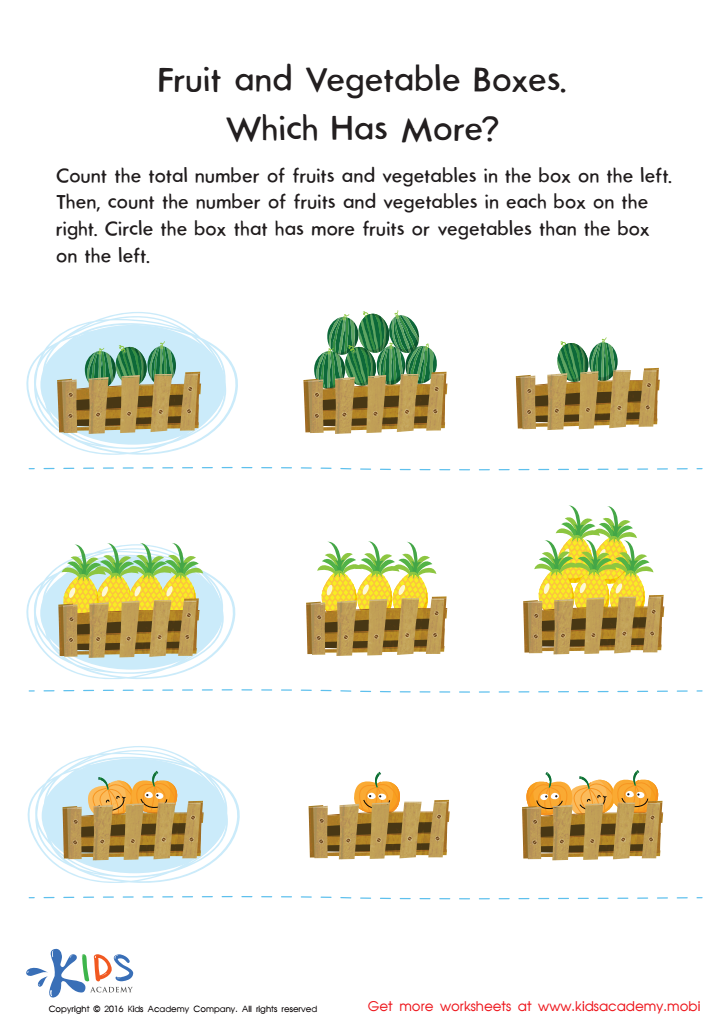

Which Has More? Size Worksheet
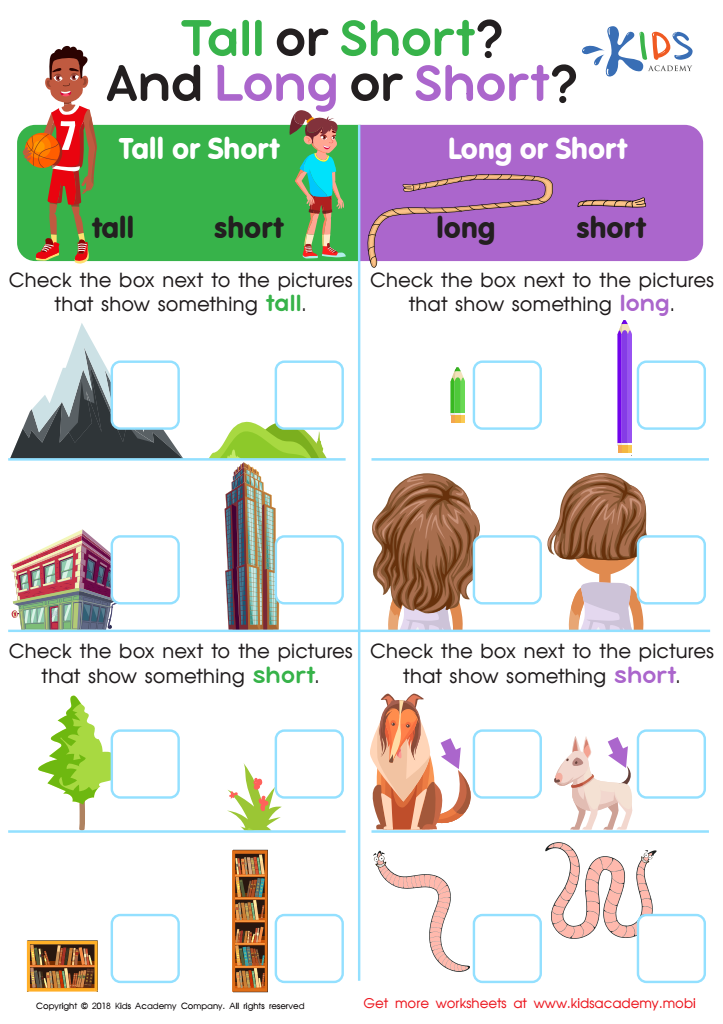

Tall or Short and Long or Short? Worksheet
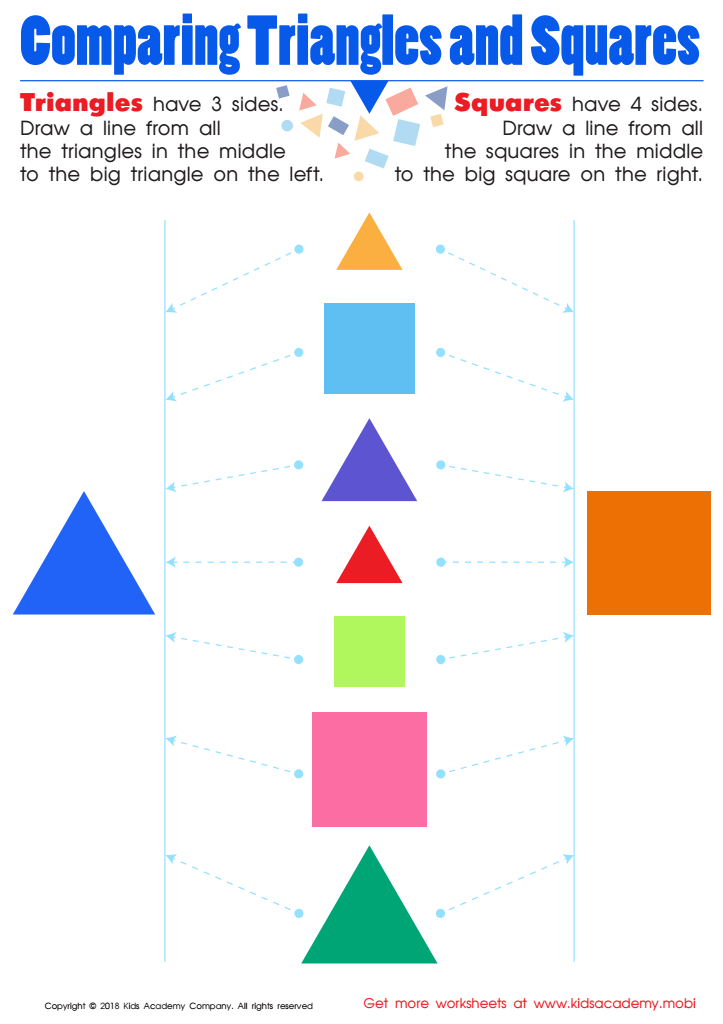

Comparing Triangles Squares Worksheet
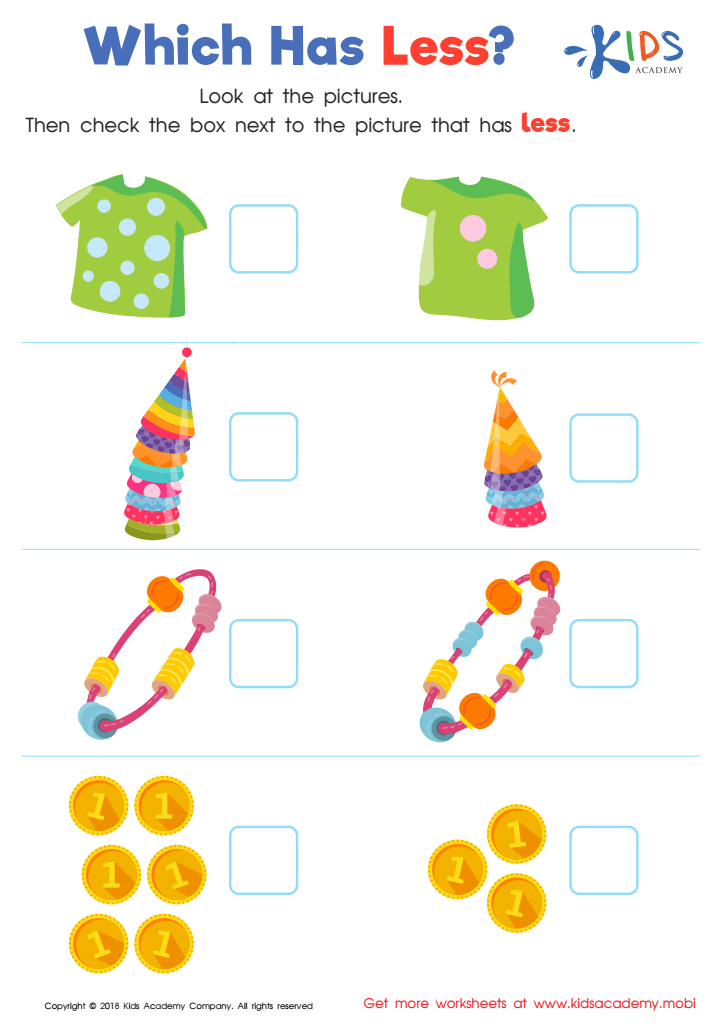

Which Has Less? Worksheet
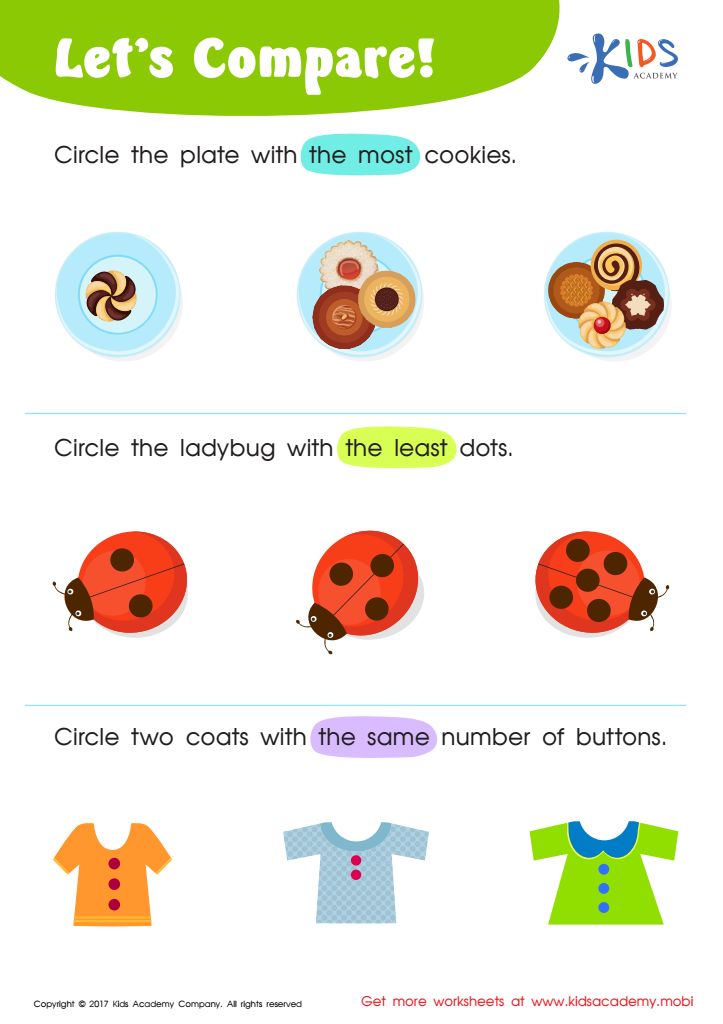

Matching: Classifying Toys by Size Worksheet


Matching: Classifying Toys by Size Worksheet
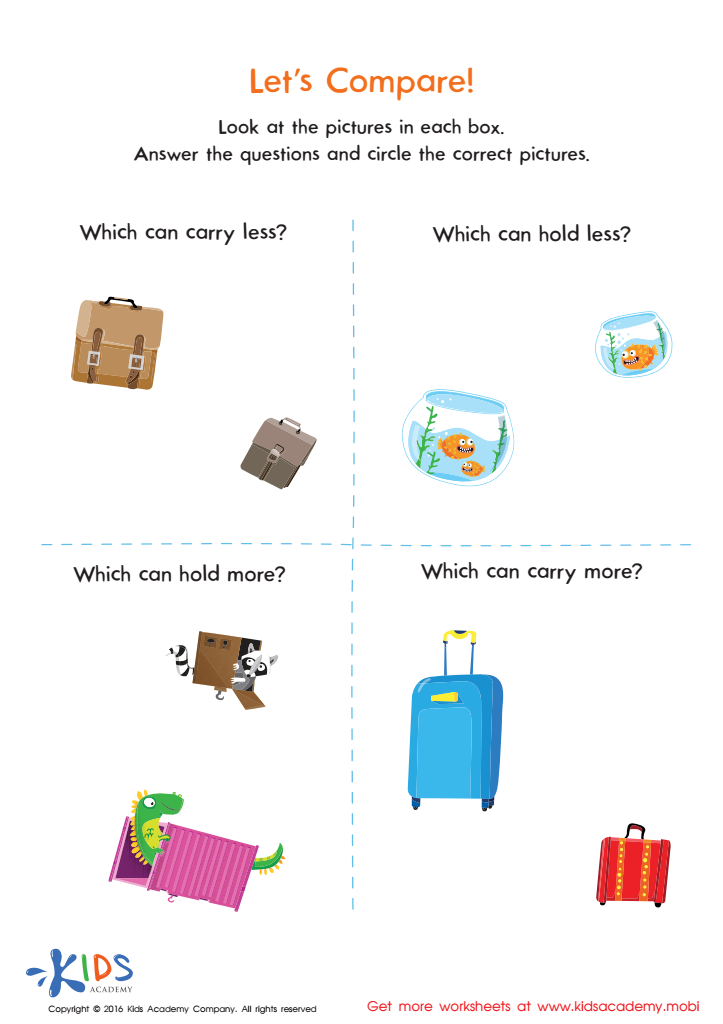

Let's Compare Worksheet: Big or Small
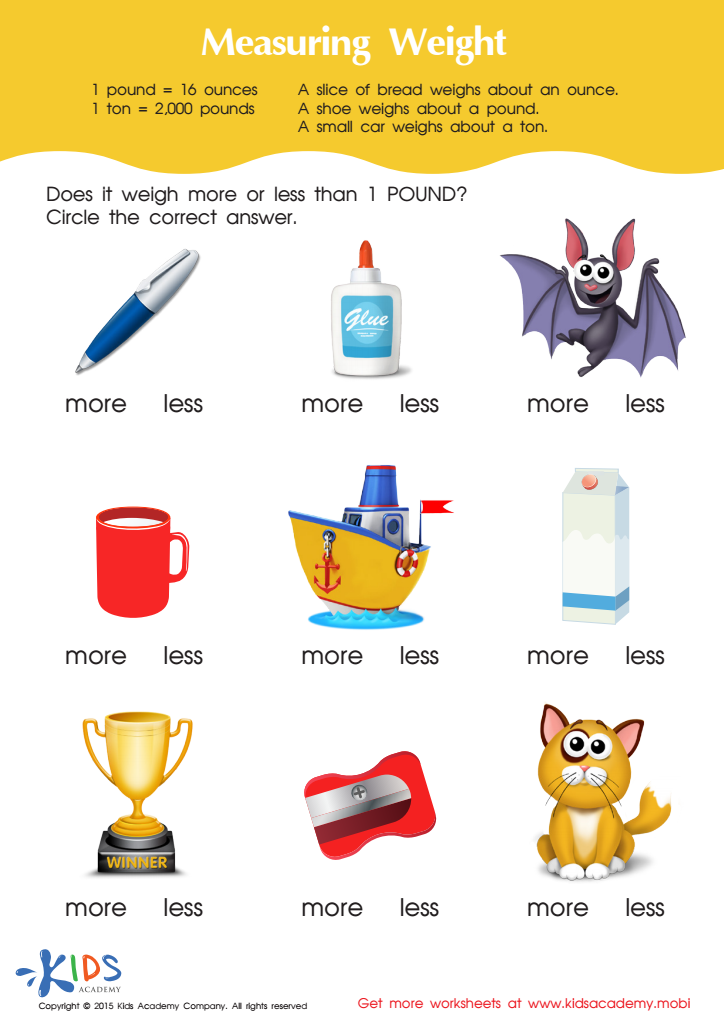

Measuring weight in pounds Worksheet
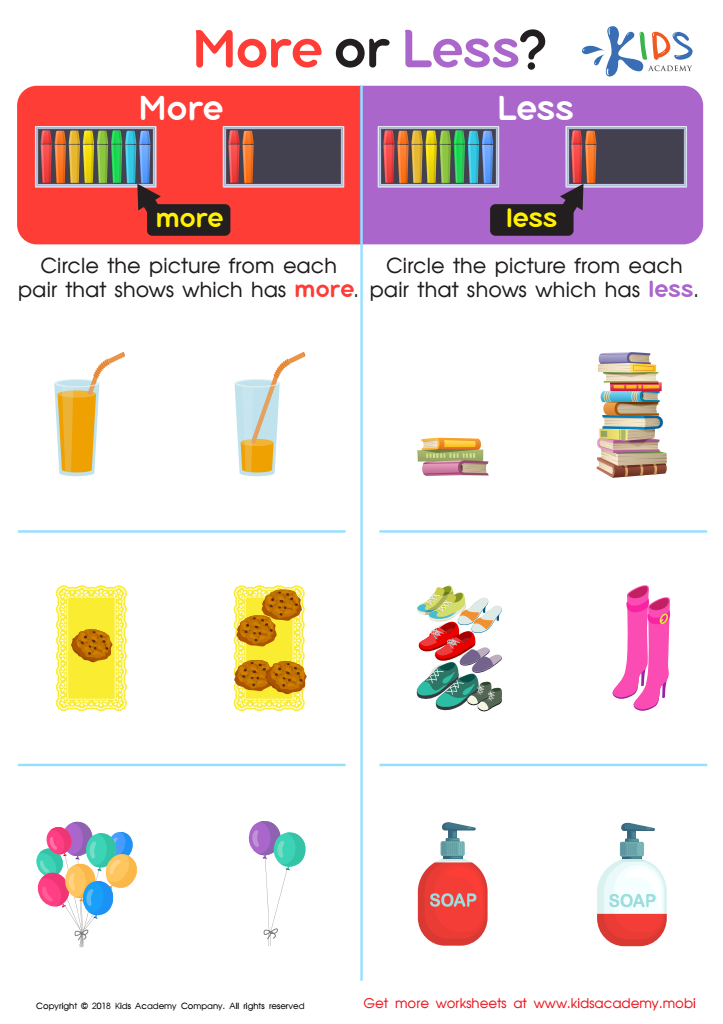

More or Less? Worksheet
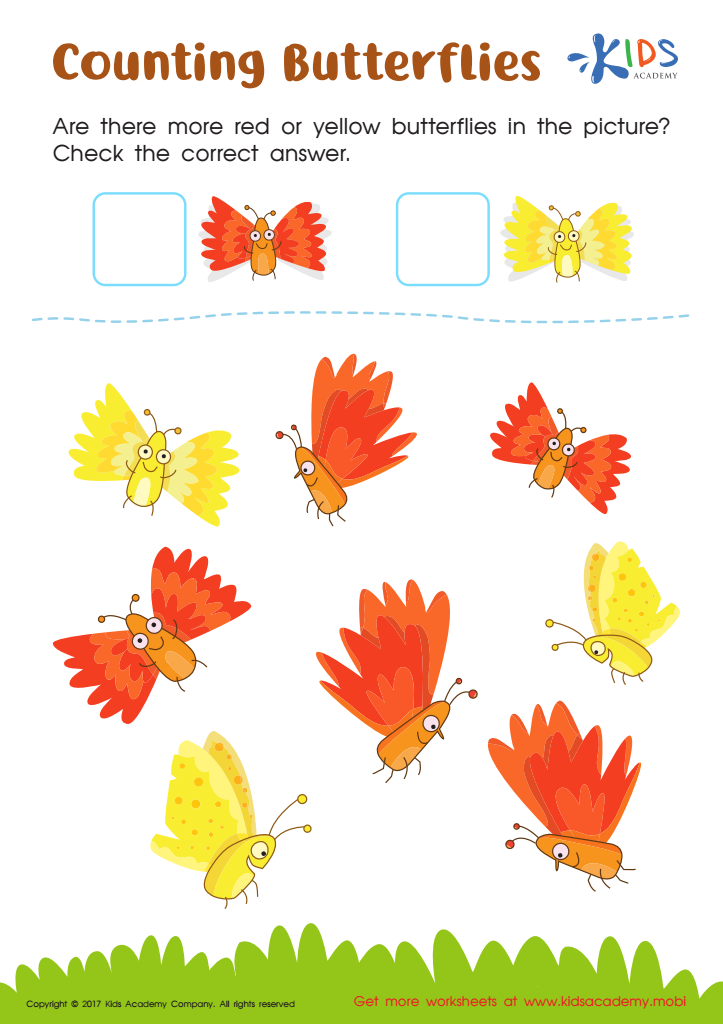

Counting Butterflies Worksheet
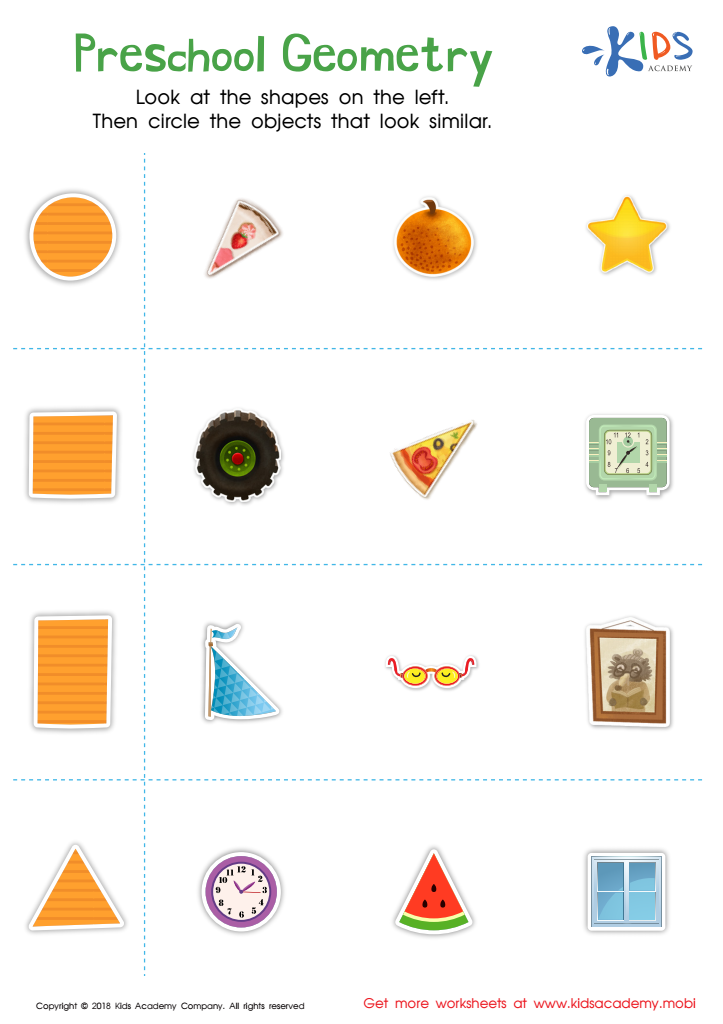

Preschool Geometry Worksheet
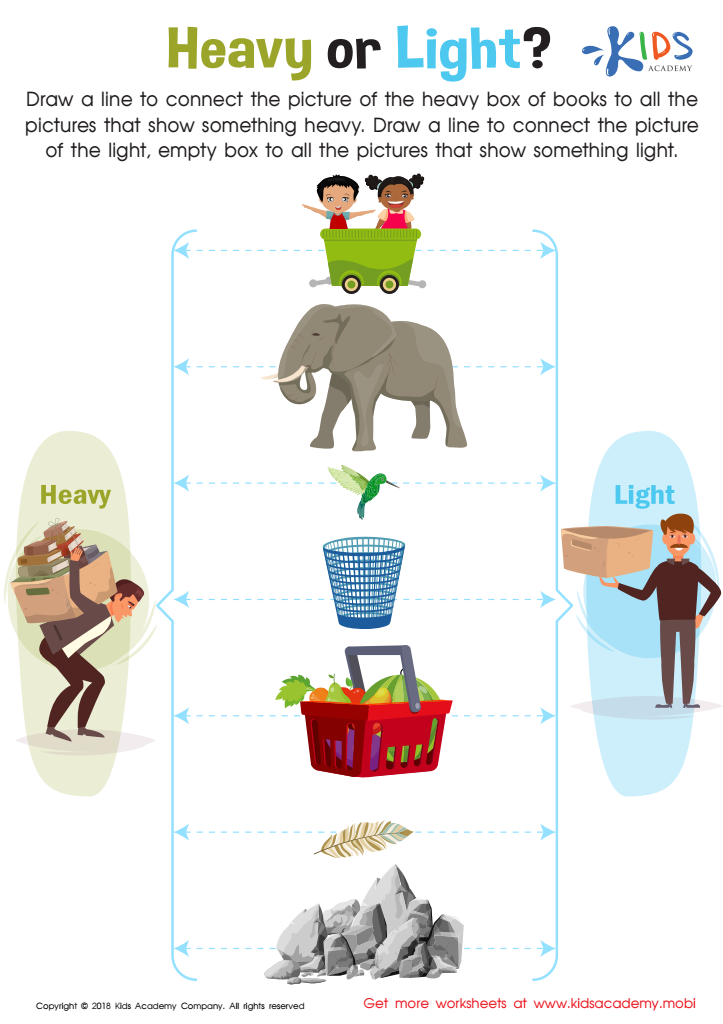

Heavy or Light? Worksheet
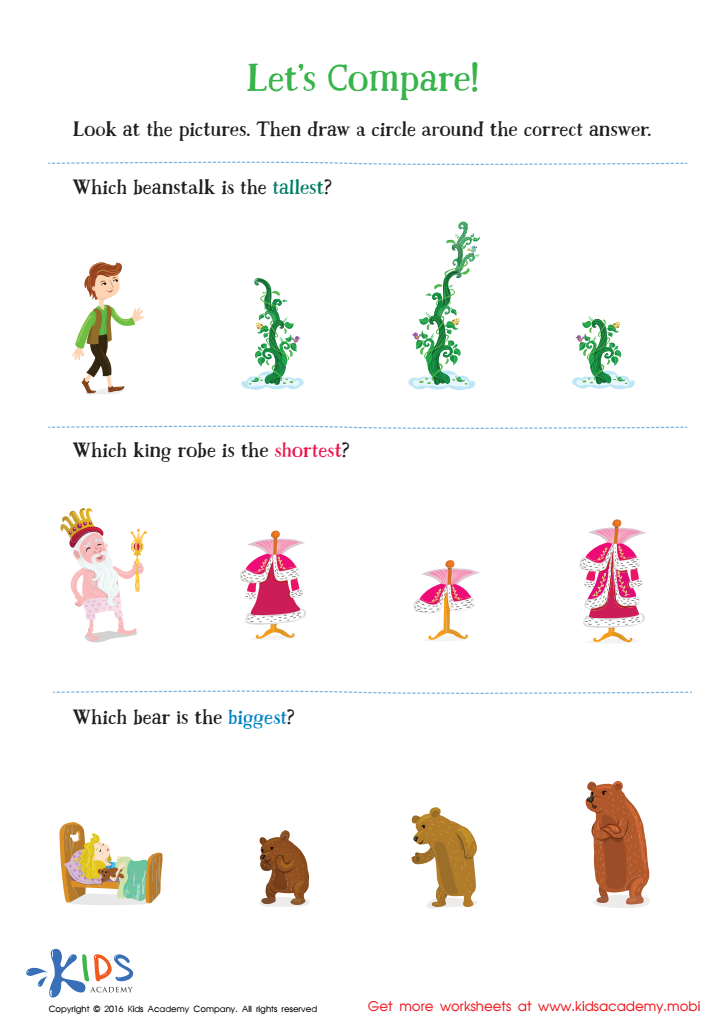

Fairy Tale Worksheet: Let's Compare
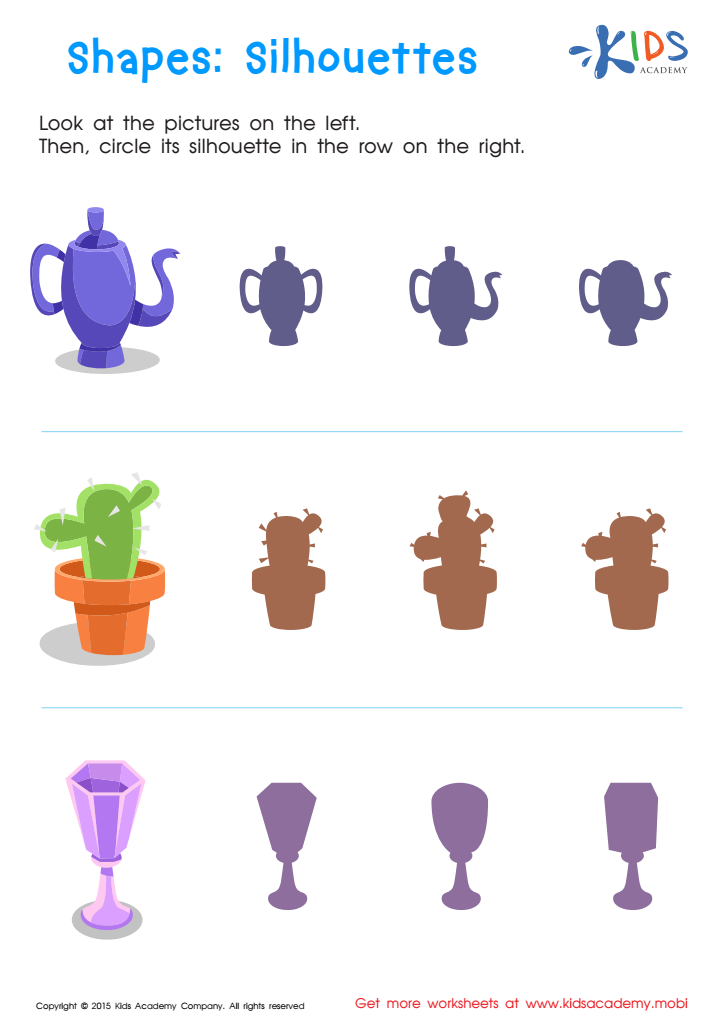

Silhouettes – Shapes Worksheet
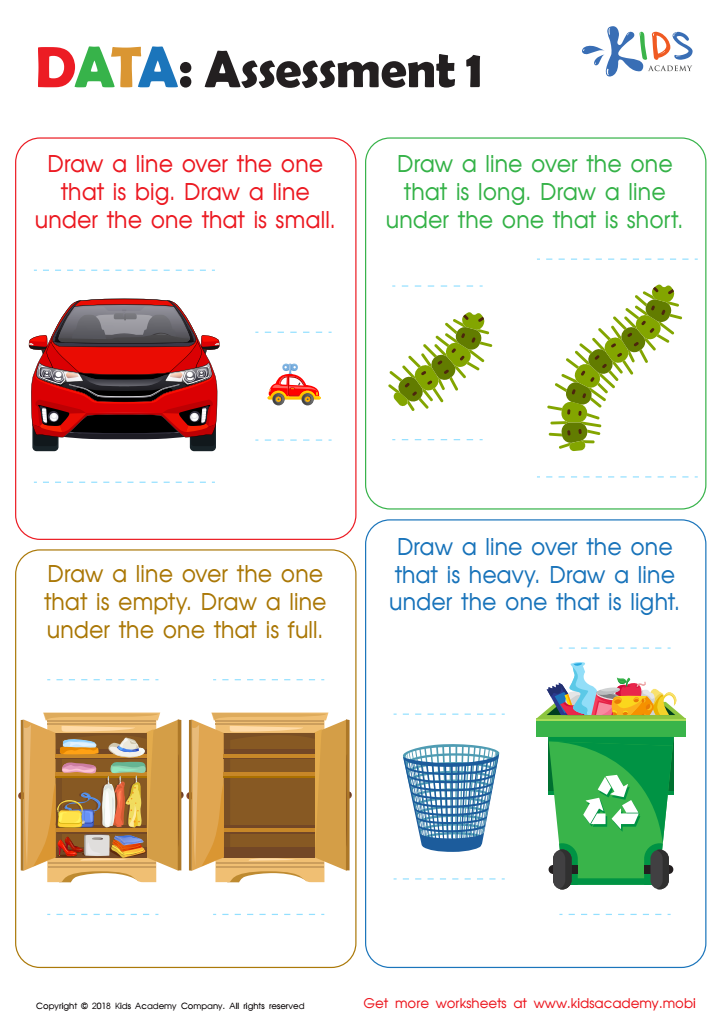

Data: Assessment 1 Worksheet
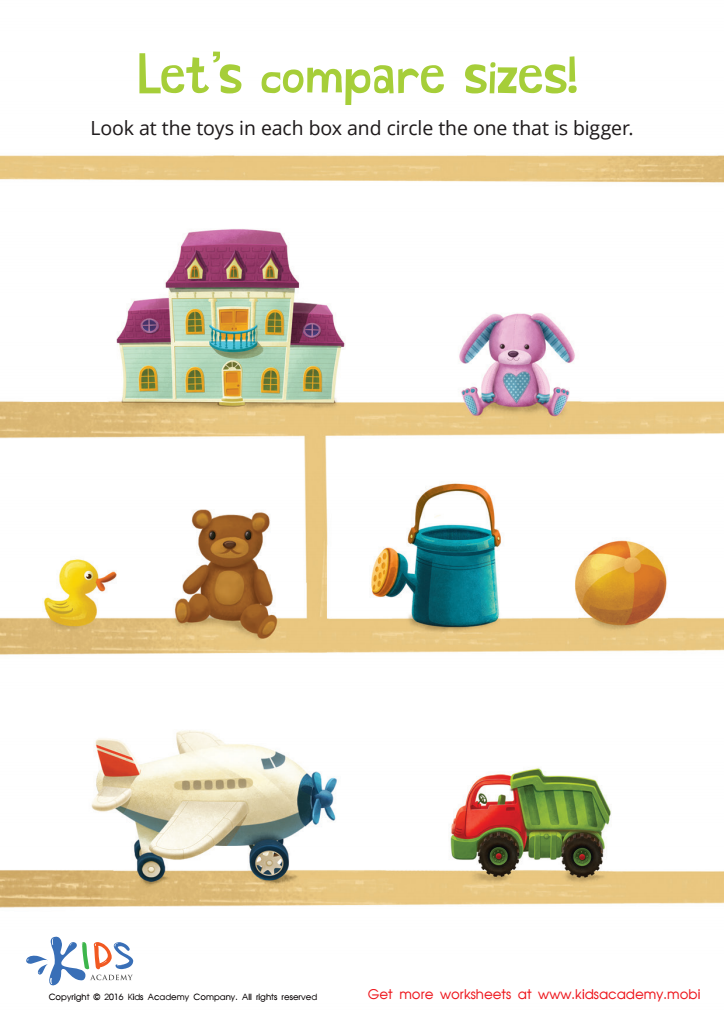

Classifying by Size Sorting Worksheet
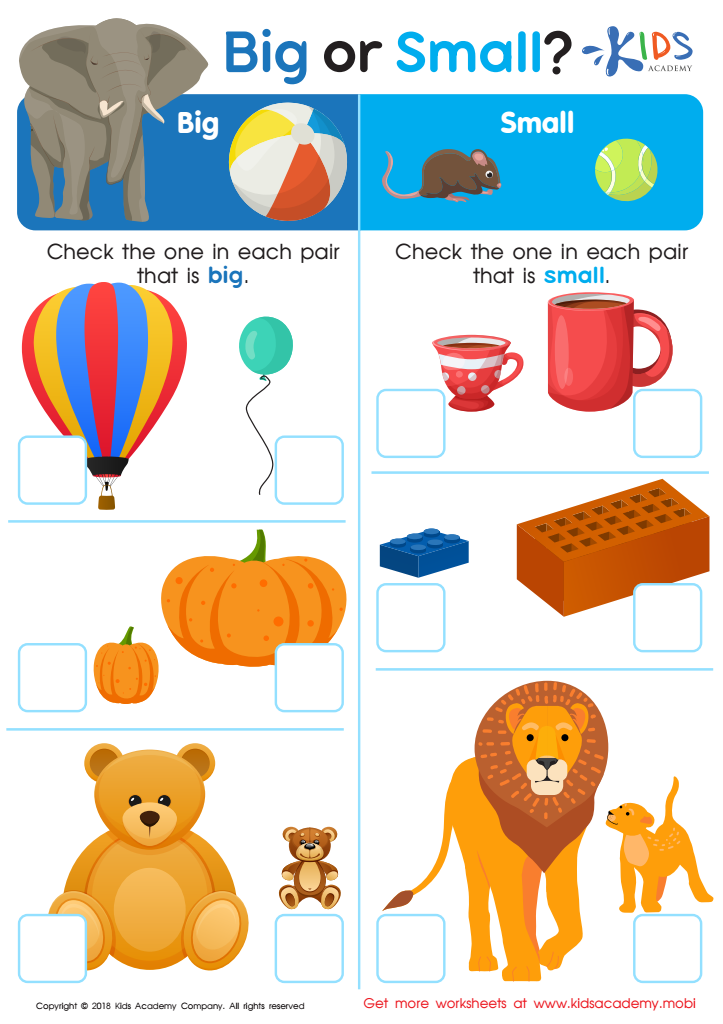

Big or Small? Worksheet
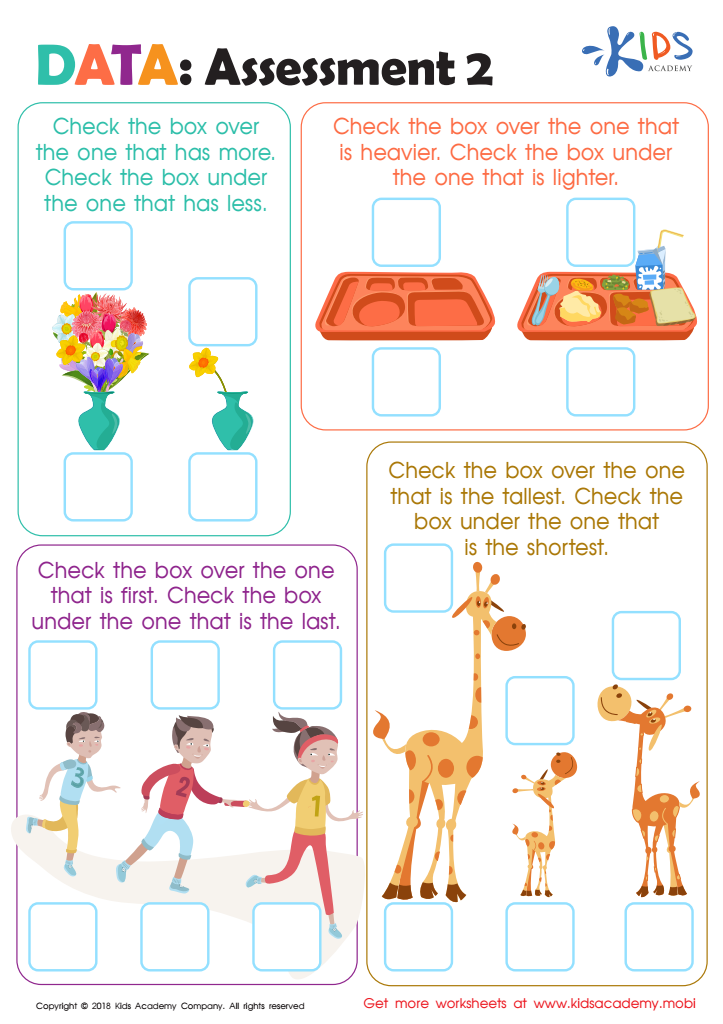

Data: Assessment 2 Worksheet
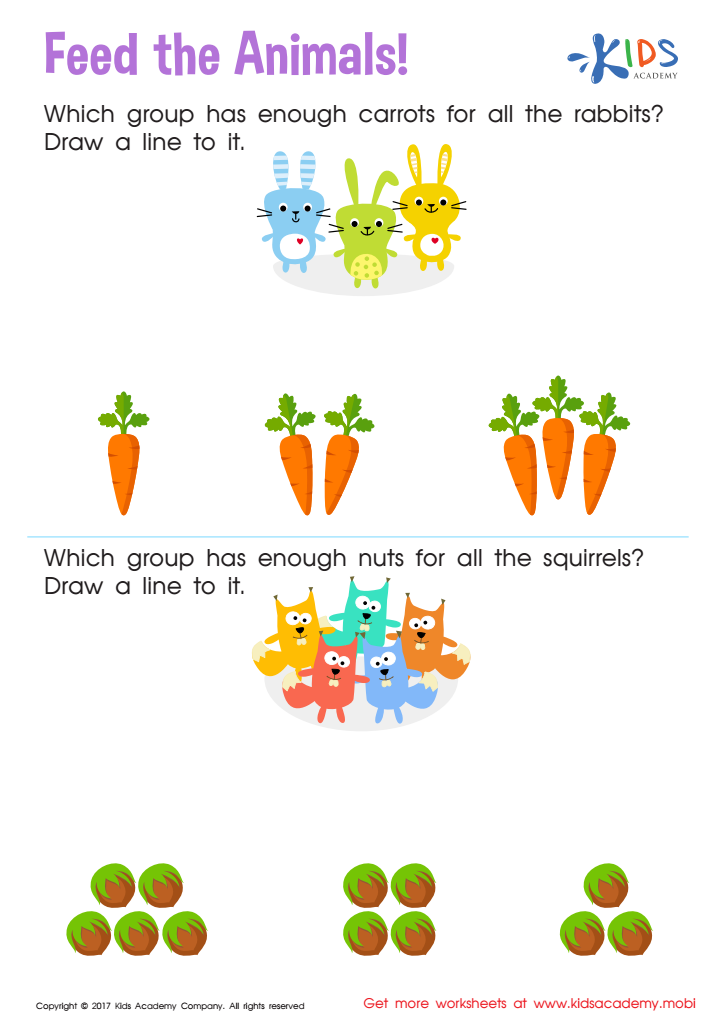

Count and Match: Feed the Animals Worksheet
Worksheets focused on comparison for ages 5-6 are incredibly beneficial for young learners as they navigate the foundational stages of their educational journey. At this tender age, children are rapidly developing cognitive skills, including the ability to discern differences and similarities between objects, ideas, and quantities. By engaging with comparison worksheets, children are not merely learning to identify which items are bigger, smaller, heavier, or lighter; they are also enhancing their analytical thinking, problem-solving abilities, and observational skills.
Comparison worksheets tailored for ages 5-6 are meticulously designed to match the developmental stage and learning capacity of young children. These worksheets typically feature colorful, engaging, and relatable content that captures the interest of young minds, encouraging them to explore concepts in a fun and interactive manner. Whether it's comparing sizes, lengths, quantities, or even basic concepts of time, these worksheets lay a solid foundation for mathematical reasoning, critical thinking, and even preparation for more complex mathematical concepts in the future.
Moreover, comparison exercises help improve language and vocabulary as children learn descriptive terms and phrases that are essential for comparison. They also foster a sense of achievement and confidence as children successfully complete tasks, encouraging a positive attitude towards learning.
In conclusion, comparison worksheets for ages 5-6 are not just about learning to compare; they are about building a comprehensive skill set that supports children's overall development, preparing them for academic success and everyday challenges.
 Assign to My Students
Assign to My Students
















